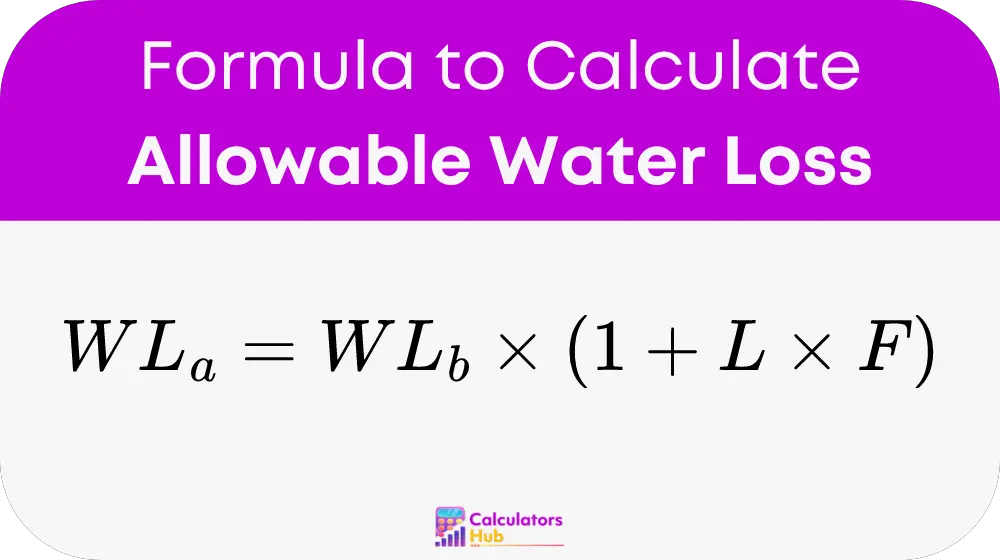The Allowable Water Loss Calculator is an essential tool designed to help water utility managers and environmental engineers accurately determine the maximum acceptable level of water loss in distribution systems. This tool is critical for ensuring the sustainability and efficiency of water resources, especially in areas facing water scarcity or regulatory compliance challenges. By calculating allowable water loss, utilities can set realistic targets for loss reduction, optimize system performance, and enhance overall water conservation efforts.
Formula of Allowable Water Loss Calculator
The formula to calculate the allowable water loss in a water distribution system is:

Where:
- WL_a is the allowable water loss.
- WL_b is the baseline water loss, which could be a set percentage or a volume based on historical data.
- L is the length of the water distribution system (typically in kilometers).
- F is the loss factor per unit length, accounting for factors like system age, pipe material, and maintenance frequency.
Table of General Terms and Factors
This table provides a quick reference to the key terms used in the calculator, facilitating easier understanding and usage:
| Term | Description | Importance or Common Values |
|---|---|---|
| Baseline Water Loss (WL_b) | Estimated or measured initial loss in the system. | Usually derived from historical data. |
| System Length (L) | Total length of the water distribution network. | Measured in kilometers. |
| Loss Factor (F) | Variable representing additional losses per unit length. | Influenced by pipe material, system age. |
Example of Allowable Water Loss Calculator
Imagine a small town with a water distribution system stretching over 50 kilometers. Suppose the baseline water loss (WL_b) is determined to be 500 cubic meters per day. Given a loss factor (F) of 0.05 per kilometer due to the system’s moderate age and the material used, the allowable water loss calculation would be:
Allowable Water Loss (WL_a) = 500 m³/day * (1 + 50 km * 0.05) = 750 m³/day
This example demonstrates how the town’s water management can use the calculator to set a threshold for acceptable daily water loss, aiding in resource planning and system improvements.
Most Common FAQs
Baseline water loss refers to the estimated or historically observed water loss in the system without any interventions. It serves as a starting point for calculations and targets for reduction.
Longer systems tend to have higher potential for leaks and losses due to more joints, greater exposure to environmental factors, and more complex maintenance requirements.
Yes, the Allowable Water Loss Calculator is adaptable to any system size or type, provided accurate and relevant data inputs are used for baseline loss and loss factors.